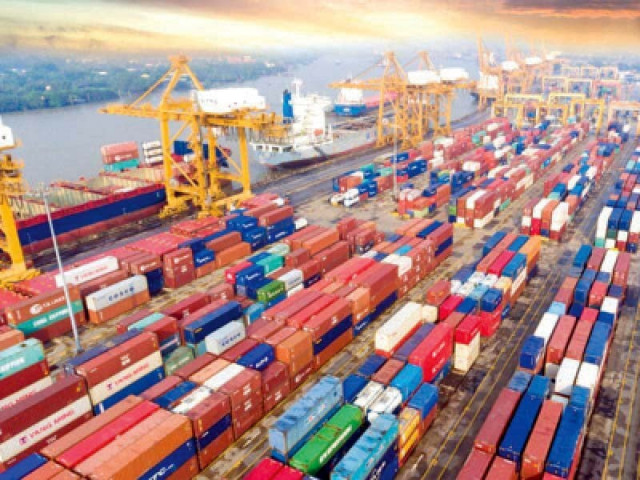Govt bans import of essential & luxury items
PM rejects proposals to increase regulatory duties

Prime Minister Shehbaz Sharif on Wednesday gave the go-ahead to a temporary ban on the imports of around three-dozen goods -- essential and luxury items -- but refused to slap regulatory duties to curb imports.
He also permitted to limit the imports of many goods -- including completely knocked down (CKD) cars and mobile phone kits -- by half of the last month’s imports, sources privy to the meeting told The Express Tribune.
A summary will soon be moved to seek the cabinet’s approval of the measures and a notification is expected within 48 hours, according to the Federal Board of Revenue sources.
The decision to ban certain goods and impose quantitative restrictions on others will be temporary, only for two to three months, according to a senior government functionary.
The government will face a challenge to secure the IMF’s nod for placing restrictions on imports. It will also have to notify the World Trade Organization about the measures and the global free trade body then seeks the IMF’s input whether Pakistan’s economic conditions warrant such drastic measures.
The estimated monthly impact of the measures is not more than $300 million, indicating that the government is not in a mood to severely curtail economic growth in the new fiscal year leading to the next general elections.
The prime minister did not accept the proposals to increase regulatory duties on imported goods and also rejected recommendations to ban import of cheese, chocolates and other foods largely imported from Europe.
The European Union is Pakistan’s single largest export destination and helps Islamabad earn additional dollars through the GSP plus tariff reduction scheme.
However, such food items will be subjected to quantity restrictions aimed at lowering the country’s reliance on the goods to the extent possible without irritating the largest export destination’s partner.
PM Sharif held a meeting with the economic team and discussed the proposals in detail aimed at lowering pressure on the external sector and on the rupee that has slipped to the lowest level ever – 198.64 to a dollar.
The final approvals that Shehbaz gave was different from what he had earlier instructed this week when he asked the economic team to curb monthly imports by $2 billion or over one-fourth against the average monthly bill of $6.5 billion.
On Tuesday, the government had prepared a revised plan to reduce imports by nearly $1 billion a month through a combination of tariffs and non-tariff measures. The plan did not go through. But there is a possibility that the regulatory duties may be imposed from the next fiscal year.
The sources said that the prime minister approved ban on the import of new and old cars. But the government may face pressure from old car importer dealers. About 35,000 cars are imported every year in Pakistan. In addition, around 250,000 CKD vehicles are also imported every year.
After imposing a ban, the government needs to remain vigilant about local car assemblers who may try to fleece consumers due to increasing demand. The mobile phone imports will also be banned for the time being, according to the officials.
Similarly, the CKD cars imports will be restricted to half, so that of the SKD phone kits. The prime minister, the sources added, also allowed the ban on the import of carpets, except being imported from Afghanistan. The import of furniture, frozen meat and pet food could also be banned.
The meeting was informed that the imports could be reduced by close to $1 billion, or about 15% of the total monthly imports, if the regulatory duties were substantially increased. Imports stood at $6.6 billion in April 2022 while in the first 10 months of the current fiscal year, the imports reached a record high at $65.5 billion. They can increase to $77 billion by the end of June.
The current account deficit has already ballooned to $13.2 billion in nine months of the current fiscal year and it is estimated to widen to $17 billion to $18 billion by the end of the year if no corrective measures were taken.
The government’s macroeconomic framework suggested that it had a plan to cut the current account deficit to $10 billion in the next fiscal year. Effectively, Pakistan’s gross foreign exchange reserves are negative amid the coalition government’s inability to take tough decisions timely, mainly the increase in petroleum product prices.


















COMMENTS
Comments are moderated and generally will be posted if they are on-topic and not abusive.
For more information, please see our Comments FAQ